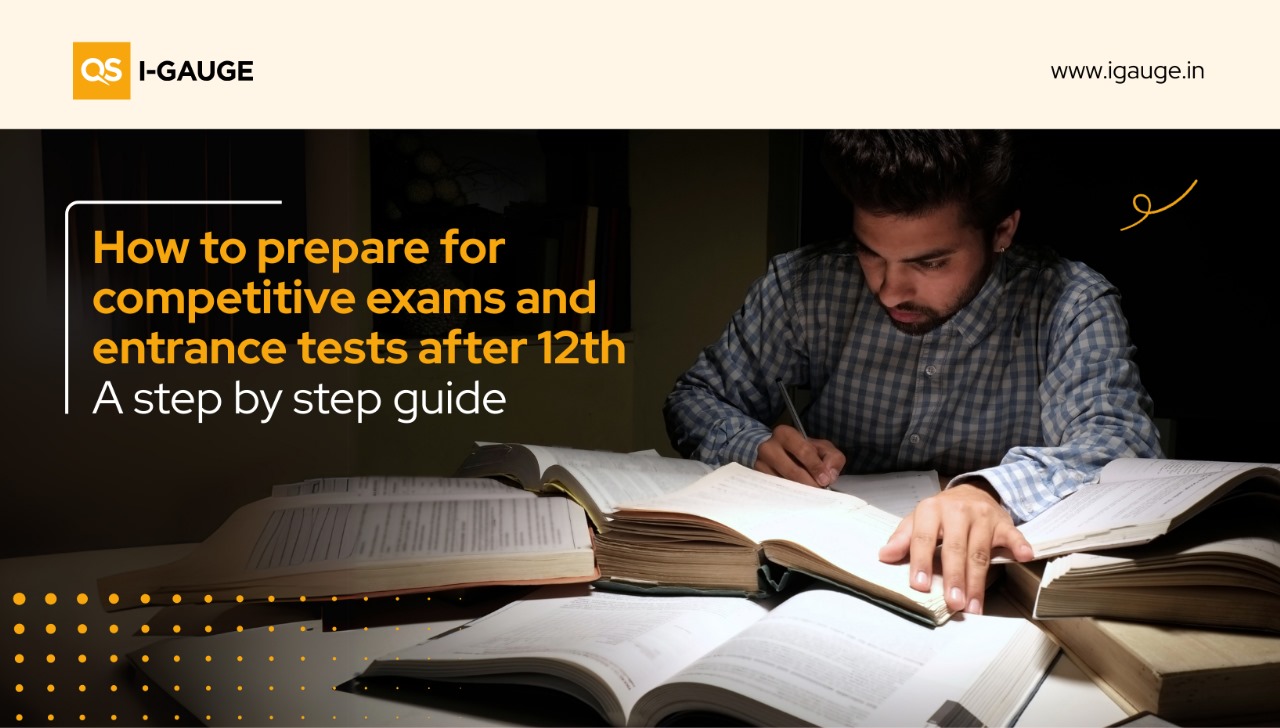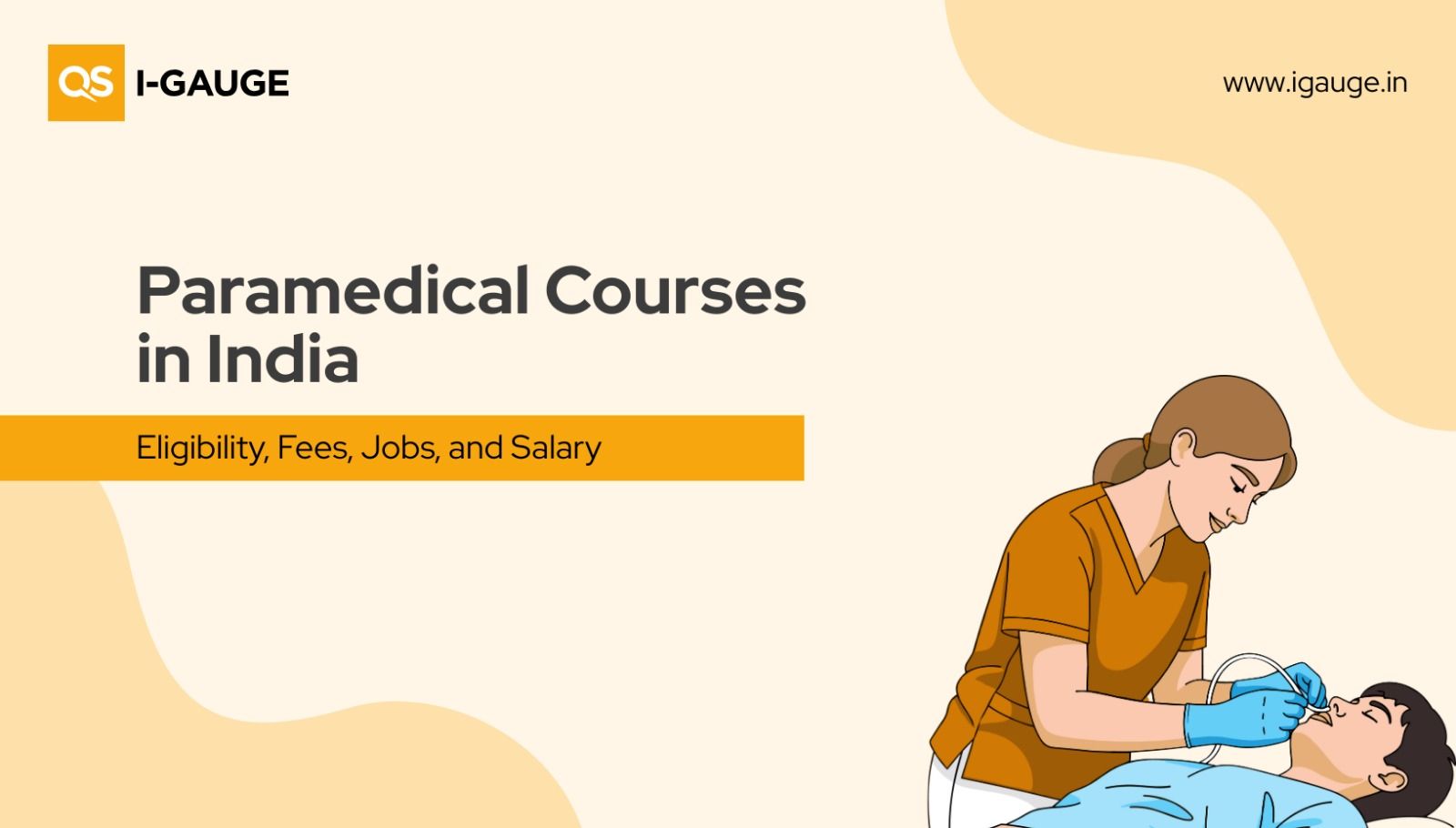
Completing your 12th grade is a major milestone — and what comes next often feels even more daunting. Competitive exams and entrance tests open the door to exciting career paths, but preparing for them requires clarity, discipline, and smart strategy.
Here’s a structured yet practical guide to help you navigate this phase with confidence.
1. Define your goal clearly
Before you dive into preparation, it’s important to define your goal.
Are you targeting engineering (JEE, BITSAT), medicine (NEET), law (CLAT, AILET), design (NID, NIFT), or another specialised field?
Each entrance exam has a distinct format, syllabus, and level of competition. Knowing exactly what you are preparing for helps in crafting an effective strategy right from the beginning.
Quick Tip:
List the entrance exams relevant to your career choice and study their patterns.
2. Plan smart, study smarter
Avoid last-minute cramming by starting early with a structured timetable.
Prioritise:
- Core concepts
- Complicated topics
- Revision time
- Mock tests
Make your study plan realistic and flexible.
Success story: Aryan Mehta cracked JEE Main with a rank under 500 by sticking to a consistent routine, taking up regular mock tests, solving past papers, and focusing on understanding over memorisation. He used online classes, that allowed flexibility and access to some of the best educators. 1
3. Use the right resources
One common mistake aspirants make is hoarding too many books and notes. Instead, choose study resources that strictly follow the official syllabus to stay focused and relevant. Prefer well-known authors and publishers like NCERT for clarity and reliability. Always opt for the latest editions, as exam patterns and content often change. This ensures accurate, updated preparation without wasting time on outdated or off-topic material.
Quick Tip:
Ask mentors or seniors for trusted book recommendations.
4. Revise actively, not passively
Revision is crucial — but simply rereading notes won’t be enough. Engage with the material actively:
- Create mind maps and summary sheets
- Practice self-quizzing
- Teach concepts to others. This helps in concept retention. Active recall strengthens memory far more effectively than passive reading.
Quick Tip:
Reserve at least 20–30% of your study time for revision.
5. Practice mock tests regularly
Mock tests are a simulation of the real exam experience. Mocks improve speed, accuracy, and time management. Analyse every test to track mistakes and progress.
After each mock, spend time analysing your mistakes and refining your strategy accordingly.
Real story: Saloni Maurya overcame financial hardships and cleared JEE Main using free online resources, strict planning, and consistent mock practice.2
6. Take care of your health
During intense preparation, health often gets overlooked. But, a healthy body and mind are critical for sustained performance.
Quick Tip:
Maintain a balanced diet, get adequate sleep, and incorporate light physical activity into your routine. Short mindfulness exercises or breathing techniques can significantly help reduce exam stress and improve concentration.
7. Join the right study circle
Group study can be effective when done right. Exchange ideas, solve doubts, and stay motivated — but avoid distractions.
8. Stay updated, stay ahead
Keep track of exam notifications, deadlines, and syllabus changes through official websites.
Quick Tip:
Set calendar alerts so you never miss an important date.
A coaching institute observed that top scorers in exams like IIT-JEE, NEET, and BITSAT succeeded by clearly understanding the exam pattern, using limited high-quality study material, setting daily targets, and consistently taking mock tests to fine-tune their strategy. 3
Final Word: Be Consistent, Not Perfect
Preparing for entrance exams is less about perfection and more about persistence. Stay disciplined, believe in your process, and adapt as needed.
"Success doesn’t come from what you do occasionally, it comes from what you do consistently."
Disclaimer
The blog is curated by referring to various credible sources and does not necessarily reflect the opinions or positions of QS I-GAUGE. The information provided is for general informational purposes only, readers are advised to conduct their own research and seek professional advice before making any decisions.
References:
https://www.jitinchawla.com/post/ultimate-guide-to-cracking-competitive-exams-after-12th 3




